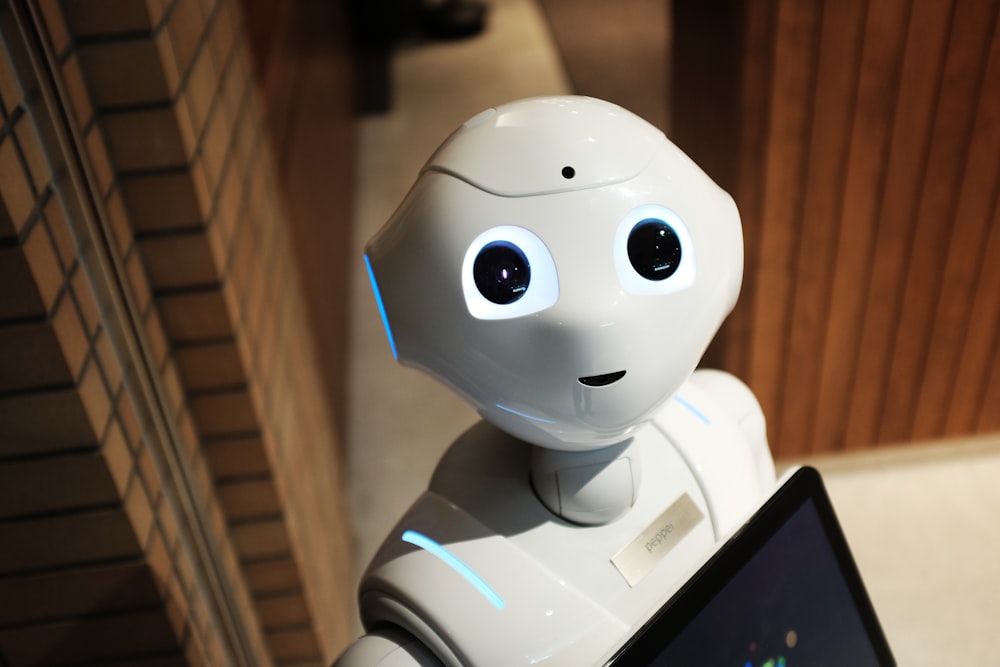With AI Technology Rapidly Advancing, Ethics Must Evolve As Well
Image Source: Unsplash
Last week my son asked me, “Baba, will robots ever pray?”
He wasn’t really asking about machines. He was asking about us.
In 2025, artificial intelligence can compose symphonies, design proteins, and outthink grandmasters — but it still cannot tell the difference between right and wrong.
We are living through humanity’s most dazzling paradox: our tools are getting smarter, and our species is not.
Ray Kurzweil, the futurist who predicted much of today’s technological reality, believes that within a decade we’ll cure most diseases, print replacement organs, and reverse-engineer the brain. By 2045, he predicts, we’ll merge with machines in what he calls “the singularity” — the moment when artificial and human intelligence become one.
But others, like Oxford philosopher Nick Bostrom, warn that this same trajectory could end in catastrophe — that the very systems we build to perfect life could extinguish it. Elon Musk calls AI “more dangerous than nukes.” The RAND Corporation projects that algorithmic escalation could trigger a nuclear war by 2040.
Whether this century becomes our renaissance or our ruin will depend on a quality that can’t be coded or automated: wisdom.
For all our progress, we have not yet learned to match our technological power with moral imagination. We’ve achieved abundance without equilibrium, connection without community, knowledge without humility. The danger isn’t that machines will become more human — it’s that humans will become more machine-like, optimizing for speed and efficiency while forgetting the soul.
Humanity’s story has always been shaped by invention. The wheel, the compass, the printing press, the microchip — each expanded what we could do, but not necessarily who we could be. The Industrial Revolution lifted billions from poverty, yet it also gave us the mechanized wars of the twentieth century. Nuclear energy promised limitless power — and then birthed Hiroshima. Today, as we stand on the edge of quantum computing, gene editing, and artificial general intelligence, the pattern repeats. The tools evolve. The ethics lag behind.
We need a new kind of moonshot — not just of science, but of spirit.
In 1962, when President Kennedy called on America to go to the moon, he wasn’t only talking about rockets. He was summoning courage — the moral kind. We need that spirit again, not to conquer space, but to govern it; not to colonize Mars, but to steward Earth.
Progress must no longer mean “faster, cheaper, smarter.” It must mean “wiser, fairer, more humane.” Our technologies should be judged not only by what they make possible, but by what they make of us.
Imagine if every frontier technology — from AI to biotech to quantum computing — came with a “humility checkpoint.” Before deployment, creators would have to answer not just can we build it, but should we? Not just what will it do, but who might it harm? Just as engineers stress-test bridges, societies should stress-test the moral load of the tools shaping our destiny.
There are glimmers of conscience. The European Union has passed the world’s first AI Act, setting guardrails for algorithmic power. The Vatican’s “Rome Call for AI Ethics” gathers technologists and faith leaders to ensure machines serve human dignity. And universities from Stanford to Tel Aviv now embed ethics directly into computer science and engineering, treating moral reasoning as a core skill — not an afterthought.
But we must go further. Each nation should create a Council on the Future of Humanity, uniting scientists, ethicists, artists, and faith leaders. Their charge: to ask the questions that markets and ministries rarely do. What is all this for? What kind of civilization are we becoming?
The great danger of our age isn’t malevolence — it’s momentum. The quiet, frictionless drift of human power without direction. We are sprinting toward a future that few have stopped to imagine.
And yet, hope endures. History shows that we are capable of moral leaps as profound as our technological ones. We abolished slavery, extended rights, conquered disease, and in moments of deep division, rediscovered our shared humanity. Each breakthrough began with a small act of imagination — someone daring to believe the world could be different and acting as if it already were.
The question before us is no longer whether we can build smarter machines. We can. The question is whether we can build wiser humans — whether we can use our genius not only to solve problems, but to elevate the soul.
The next great revolution will not be digital, biological, or quantum. It will be moral. And like every true revolution, it will begin within us — with the ancient, ever-new realization that technology is a mirror. What it reflects depends entirely on who we choose to be.
If we will it, it is no dream – and wisdom will win.
More By This Author:
Let There Be Light: How Israel Can Power America’s Clean Energy RevolutionA Higher Calling: How Israeli Marijuana Research Changed the World
How Israel Can Help Stem Over-Fishing in the South China Sea
Receive The Latest By Email: Subscribe To Avi Jorisch's Free Mailing List.




